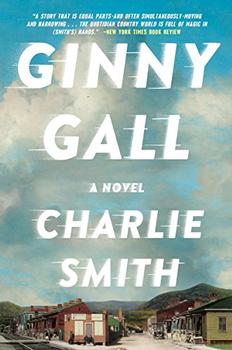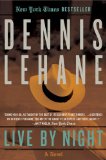Summary | Excerpt | Reading Guide | Reviews | Beyond the book | Read-Alikes | Genres & Themes | Author Bio

The year is 1917, America has recently joined the War in Europe.
Fun-loving Frieda is out on the town catching a few minutes downtime from her
tedious job as a "bundle wrapper" in a department store, a job she has taken
relatively recently after fleeing her mother's house to escape marriage to the
deeply unattractive and hairy-eared widower Pinchas Hersch, who is twice her age and
sees marriage to her as a cheap form of childcare for his odious children.
Young and fun-loving she might be, but she's not reckless. She knows just
how far she's prepared to go for a few drinks and the occasional gift, but the
balance changes when she catches sight of Private Felix Morse. A romance
ensues and Frieda, believing this to be the "real thing", allows Felix to go
further than she has been with any other man. As it happens her beau is
not only handsome and apparently decent, but also heir to a substantial fortune
(a story that would seem a little too neat if it wasn't for the fact that the
romance is actually based on the author's grandparents - see the backstory
below).
Not long after she gets a visit at work from the formidable and humorless Mrs
Sprague who informs her that Felix has tested positive for syphilis and has
given her name as his last contact. A few chapters later, having lost her
job following Mrs Sprague's visit, and got herself into deeper trouble by going
to the camp in an attempt to find Felix, Frieda finds herself charged with
prostitution and locked up with a group of women who are all undergoing a
humiliating and dehumanizing course of treatment for their "social diseases". The wide range of women we meet in the
detention center enables Lowenthal to explore the moral morass from multiple
angles; there's the worldly prostitute, the teen runaway who is running from
something far worse than the detention center; and even a trade-unionist who
knows her rights - but who is there to listen to them? Cut off from the
outside world, forbidden to write or receive letters, the girls are in the hands
of the system and the people who administer it, who often have little more power
over their destinies than the girls themselves.
The particular moment in history that Lowenthal explores will be news to most, but the tale of governments overruling the rights of those without the influence to defend themselves is familiar. Of course, this is all in the past, something like this couldn't happen in America today, could it?
The Story Behind The Book:
Charity Girl was inspired by a line in Susan Sontag’s AIDS and Its
Metaphors, in which she likens the incarceration of American women during
World War I to the internment of Americans of Japanese ancestry during World War
II. Lowenthal says, "The latter historical episode I had, of course, heard
about, but not the first . . . I immediately had two thoughts: (1) how awful,
and (2) what a great basis for a novel."
During World War I about 30,000 American women were rounded up on suspicion of
carrying a venereal disease, of which about 15,000 were incarcerated in reformatories and detention homes—often for months at a
time, with no charge of a crime, no trial, no legal recourse—while they received
forcible medical treatment for venereal disease (keep in mind that the rights of women have changed dramatically in the past 100 years, for example it was not until the 19th Amendment in 1920 that USA women won the right to vote). Many of the detained women were prostitutes, but a great number,
such as the protagonist of Charity Girl, were simply "charity girls" out
for a bit of fun. As Lowenthal says, they "were doing nothing illicit or even unusual. Social
standards change, but I don't believe the human heart does. I couldn't stop
imagining what these charity girls had felt: girls who had the very same hopes
and sexual urges as we do now, but who were made, for having those urges, to
feel wicked. I learned that some of the detention homes had been remodeled from brothels
that the Feds shut down in their anti-vice crusade. To a novelist, this fact
came as a gift: a perfect setting. But could I, a man in the twenty-first
century, write a novel about girls in 1918?"
While he was deciding whether to develop his new found knowledge into a novel,
Michael happened to be browsing a used bookstore where he found The Story of
the Massachusetts Committee on Public Safety, published at the end of World
War I. He not only discovered a chapter about the "Massachusetts Committee
on Prevention of Social Evils Surrounding Military Camps", but found that his
great-grandfather's cousin had been on the committee - which he took as a sign
that he was meant to write the book!
This family connection enabled him to start seeing the story from a personal
viewpoint and he decided that one of the characters would be a wealthy Jewish
businessman like his great-grandfather and that he would live in a grand house
similar to that which his grandfather built in 1917. He imagined what it
would be like to live in such opulence at such a time and what it would be like
for a girl of lower social class such as his grandmother to fall in love with a
well-to-do Bostonian (his grandfather) and be brought to live in such a lavish
house. He named his main character Frieda, after his grandmother, but,
instead of recreating her life, imagined what life would have been like for her
if things had not worked out so well with his grandfather!
![]() This review was originally published in The BookBrowse Review in January 2007, and has been updated for the
January 2008 edition.
Click here to go to this issue.
This review was originally published in The BookBrowse Review in January 2007, and has been updated for the
January 2008 edition.
Click here to go to this issue.

If you liked Charity Girl, try these:

by Charlie Smith
Published 2017
A sweeping, eerily resonant epic of race and violence in the Jim Crow South: a lyrical and emotionally devastating masterpiece from Charlie Smith, whom the New York Public Library has said "may be America's most bewitching stylist alive."

by Dennis Lehane
Published 2013
Live by Night is a riveting epic layered with a diverse cast of loyal friends and callous enemies, tough rumrunners and sultry femmes fatales, Bible-quoting evangelists and cruel Klansmen, all battling for survival and their piece of the American dream.
Your guide toexceptional books
BookBrowse seeks out and recommends the best in contemporary fiction and nonfiction—books that not only engage and entertain but also deepen our understanding of ourselves and the world around us.